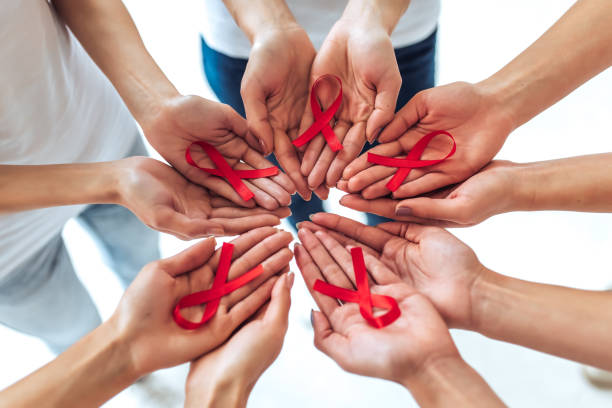8 Methods To Avoid HIV

Human Immunodeficiency Virus affects the immune system and may lead to acquired Immunodeficiency Syndrome (AIDS). Human Immunodeficiency Virus is spread through contacts with sexual partners and the sharing of needles, injecting devices or other instruments in addition to mother-to-child transmission during birth, pregnancy or breastfeeding. HIV is preventable by following certain steps. Follow these steps to avoid Human Immunodeficiency Virus.
Take a test
Being aware of the details of your Human Immunodeficiency Virus status is the first step to preventing Human Immunodeficiency Virus. Be tested for HIV frequently, particularly when you are involved with risky activities like sexual activity that is not protected and sharing needles. Tests are simple and quick. It is possible to test in the office of your physician or health clinics and community health centers or mobile testing units.
Sex that is safe and secure is crucial.
Make sure to use condoms each time you go out to decrease the chance of contracting HIV and other sexually transmitted diseases (STIs). Utilize silicone-based lubricants or water-based in condoms to avoid tearing or breaking. Avoid sharing sex toys as they may also transmit Human Immunodeficiency Virus and other STIs. Click this link to find out more about Human Immunodeficiency Virus right now.
Think about pre-exposure prophylaxis (PrEP)
PrEP is a pill taken daily which reduces the chance of Human Immunodeficiency Virus infection by as much as 99.9%. PrEP is a good choice for those who have a higher risk of Human Immunodeficiency Virus infection, such as persons with HIV-positive companions or those who participate sexual activities that are not protected, or those who share needles or syringes. Consult your physician to determine if PrEP is the right choice for you.
Hygienic needles and Syringes
Don't share syringes and needles if you are an addict. Make sure to use only safe needles and syringes in order to decrease the chance of Human Immunodeficiency Virus and other blood-borne infections. Health centers in the community and exchange programs provide free sterile syringes and needles.
Get treated for various STIs
A second STI increases the chance to HIV transmission. Test and treat for other STIs like gonorrhea Chlamydia and Syphilis. If you're receiving treatment for a STI and you're in a condom-free zone, make sure to use them when having sex.
Do not share personal items
Human Immunodeficiency Virus can be passed on through products that are used for personal use such as razors, toothbrushes, or needles. Do not share your items with blood.
Prophylaxis post-exposure
If you believe you be exposed to Human Immunodeficiency Virus get medical
help immediately. Post-exposure prophylaxis (PEP) is an drug which can lower the
chance of HIV transmission, if it is taken within 72 hours of exposure. Health
professionals, those who have suffered from rape, and anyone else who had
unprotected sexual encounters with Human Immunodeficiency Virus-positive
individual is advised to receive PEP.
Disclose Your Status
The disclosure of HIV condition is essential for everyone who is sexually involved, including needle-sharers and others. This will help to prevent HIV transmission as well as ensure you receive the medical care and support you need.
To conclude, Human Immunodeficiency Virus is a serious and life-threatening disease, but it can be prevented. If you are regularly tested, practicing safe sex taking into consideration PrEP or PEP making use of safe needles and syringes getting treated for other STIs avoid sharing personal items, and disclosing your information about your status, you will decrease the chance of Human Immunodeficiency Virus transmission, and also protect your health.

